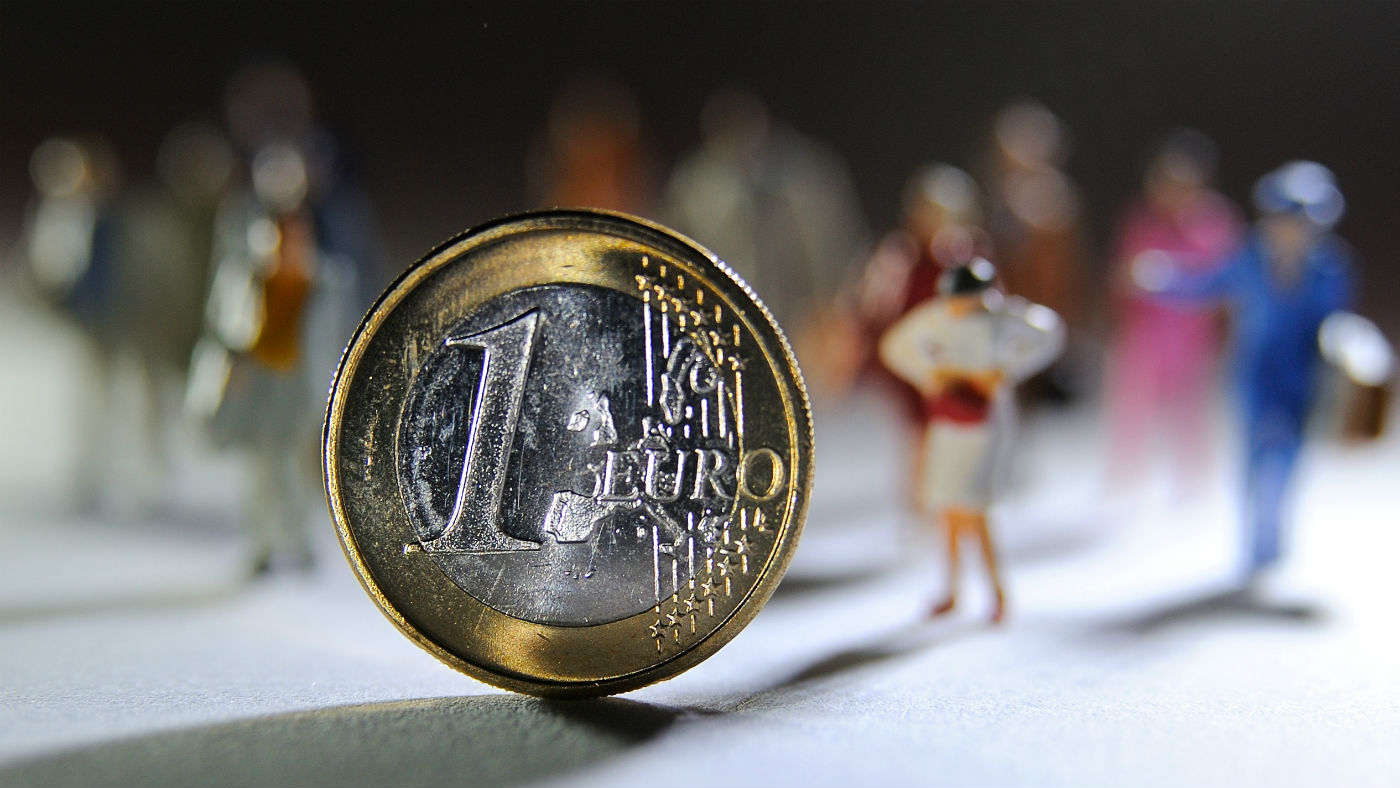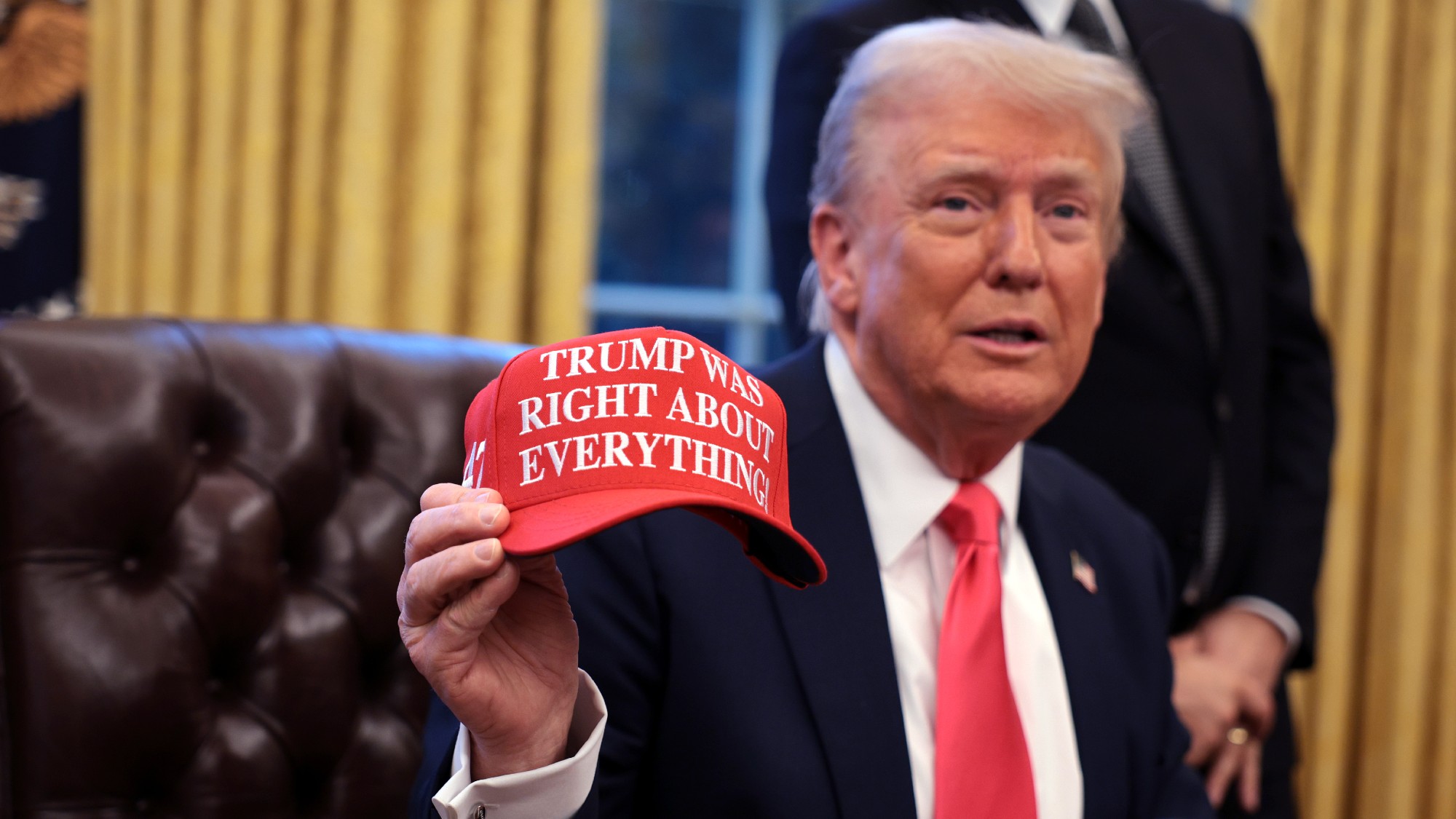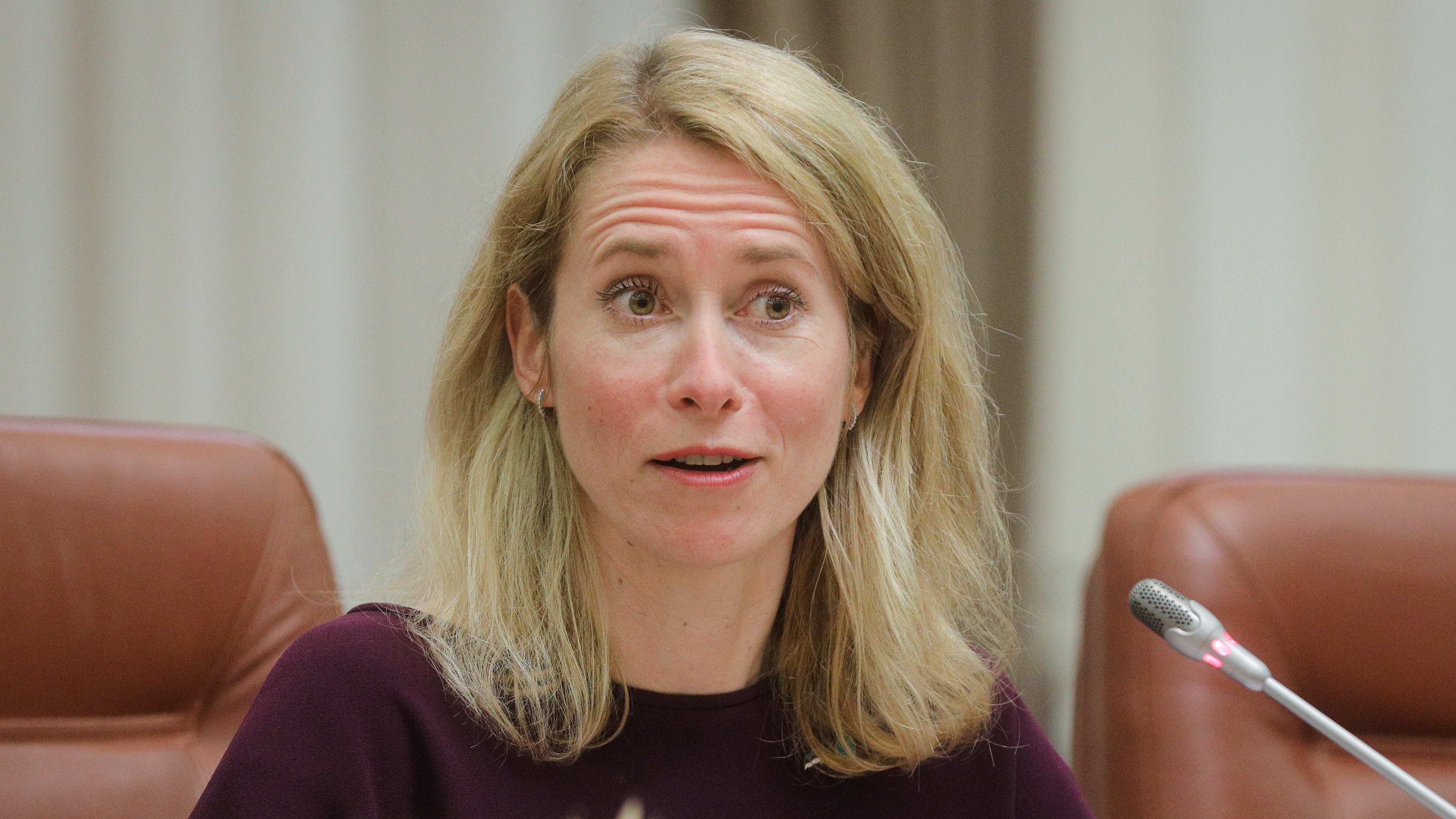EU budget: more money for ever-closer union
The EU seeks to fill its post-Brexit funding shortfall with a new seven-year budget

A free daily email with the biggest news stories of the day – and the best features from TheWeek.com
You are now subscribed
Your newsletter sign-up was successful
The European Commission has opened what is expected to be a long and arduous re-negotiation of the EU budget, unveiling plans for higher spending and controversial cuts to farming subsidies.
How much money does the EU hope to get?
Every seven years, EU leaders agree a long-term budget. The last round of negotiations took place in 2012, for the period 2014 to 2020, and for the first time in the organisation’s history, leaders decided to cut the amount it receives and spends.
The Week
Escape your echo chamber. Get the facts behind the news, plus analysis from multiple perspectives.

Sign up for The Week's Free Newsletters
From our morning news briefing to a weekly Good News Newsletter, get the best of The Week delivered directly to your inbox.
From our morning news briefing to a weekly Good News Newsletter, get the best of The Week delivered directly to your inbox.
This time, Commission President Jean-Claude Junker has set out a financial blueprint of €1.279 trillion for 2021 to 2027. Politico says this “smashes through the previous budget cap of 1% of the bloc’s gross national income” and seeks to push overall spending to around 1.1% — even as the UK and its 65 million people make their Brexit.
Roughly 80% of the current budget goes towards two key areas: agriculture and fisheries, and development projects in poor areas.
How does the new budget break down?
The new plan calls for increased budget payments by the EU’s wealthiest countries, and for cuts to agriculture subsidies, which currently make up nearly 40% of spending, and to cohesion spending to fund developments in poorer regions.
A free daily email with the biggest news stories of the day – and the best features from TheWeek.com
Outlining the headline figures, the EU’s Budget Commissioner Gunther Oettinger said there would be a 5% cut in agriculture spending, 7% cut in cohesion and 4% cut in direct payments.
However, he promised spending on the Erasmus education scheme would be doubled and proposed an increase in financing for research and development through the Horizon 2020 programme, in order for the EU to continue to compete with China and the US.
The budget would also result in more spending on foreign aid, eurozone stability, compensation for job losses from open trade and on joint defence and frontier guards.
Oettinger said in order to move the EU forward, “both sides of the coin are needed” - meaning saving some money and expecting countries to pay more into the budget.
What is the EU saying?
Addressing the looming prospect of Brexit directly, Junker said the new budget was “an opportunity to shape our future as a new, ambitious union of 27 bound together by solidarity”.
“With today’s proposal we have put forward a pragmatic plan for how to do more with less,” he added. “The economic wind in our sails gives us some breathing space but does not shelter us from having to make savings in some areas.”
His language “reflects a campaign from Brussels to persuade voters the bloc remains relevant,” Reuters says, “after a decade of crisis that has seen ferocious austerity in countries hit by the euro zone debt crisis and uproar over the arrival of more than a million irregular migrants across the Mediterranean in 2015 alone”.
“Everywhere you look are measures to bring Europe together,” says the BBC’s Adam Fleming, including more money to enforce internal freedom of movement and bolster EU values.
What has the reaction been?
Eurosceptics have rounded on plans to increase national contributions and increase the overall EU budget, even as it faces a post-Brexit funding shortfall as Britain prepares to leave the bloc and a wave of anti-EU populism sweeps across the continent.
Former UKIP leader, Nigel Farage, said he expected the “overarching imperial ambitions” of the budget to fuel Euroscepticsm across the continent, especially in Northern European states which are being asked to pay even more into the EU pot.
On farming subsidies
The biggest row is undoubtedly going to be over cuts to farming subsidies, which have come under increasing scrutiny in recent years over claims they prioritise big landowners (such as British royals, the aristocracy and multinational companies) with direct payments based on acreage.
France has long blocked any move to cut the Common Agricultural Policy, and French MEPs wasted no time in attacked the planned reduction in funding, with conservative MEP Michel Dantin comparing the move to an “organised hold-up”.
Yet despite this opposition, there is widespread support for a reform of farming subsidies, and “if confirmed, a reduction of the CAP would break with France’s traditionally ironclad defence of farmers’ subsidies” says Politico.
On rebates
Another of the more contentious announcements is a plan to phase out individual rebates for member states. The UK currently receives the largest rebate, but Austria, Denmark, Sweden, the Netherlands and Germany also receive some money back annually.
The Dutch Prime Minister Mark Rutte said “this proposal is not an acceptable outcome”.
“Brexit is already set to hit the Netherlands’ economy hard,” he said. “This MFF proposal imposes a disproportionately high bill on top of that.”
On rule of law
Some EU countries, most notably Poland and Hungary, will also be concerned about the Commission’s proposal to link rule of law and EU payouts, even though Junker was keen to stress this did not target any country in particular.
What happens now?
This is just the start of what Junker admitted would be a long, tough debate before the budget is passed.
Divisions have also already emerged within the EU, with European parliament President Antonio Tajani saying he had pushed for an even greater increase in the percentage of GNI contributed by members.
In a sign of the potential battles ahead, plans to lift the cap have already met stiff opposition from the EU’s richer “net contributor” states, with Austria vowing not to pay a penny more to Brussels.
The fight over farming subsidies could go the distance too: Tajani said Parliament will “do its utmost” to push through a reduction in the CAP.
-
 The EU’s war on fast fashion
The EU’s war on fast fashionIn the Spotlight Bloc launches investigation into Shein over sale of weapons and ‘childlike’ sex dolls, alongside efforts to tax e-commerce giants and combat textile waste
-
 How to Get to Heaven from Belfast: a ‘highly entertaining ride’
How to Get to Heaven from Belfast: a ‘highly entertaining ride’The Week Recommends Mystery-comedy from the creator of Derry Girls should be ‘your new binge-watch’
-
 The 8 best TV shows of the 1960s
The 8 best TV shows of the 1960sThe standout shows of this decade take viewers from outer space to the Wild West
-
 Is Trump's tariffs plan working?
Is Trump's tariffs plan working?Today's Big Question Trump has touted 'victories', but inflation is the 'elephant in the room'
-
 Can the UK avoid the Trump tariff bombshell?
Can the UK avoid the Trump tariff bombshell?Today's Big Question President says UK is 'way out of line' but it may still escape worst of US trade levies
-
 Five years on, can Labour's reset fix Brexit?
Five years on, can Labour's reset fix Brexit?Today's Big Question Keir Starmer's revised deal could end up a 'messy' compromise that 'fails to satisfy anyone'
-
 Why au pairs might become a thing of the past
Why au pairs might become a thing of the pastUnder The Radar Brexit and wage ruling are threatening the 'mutually beneficial arrangement'
-
 Brexit: where we are four years on
Brexit: where we are four years onThe Explainer Questions around immigration, trade and Northern Ireland remain as 'divisive as ever'
-
 Is it time for Britons to accept they are poorer?
Is it time for Britons to accept they are poorer?Today's Big Question Remark from Bank of England’s Huw Pill condemned as ‘tin-eared’
-
 Is Brexit to blame for the current financial crisis?
Is Brexit to blame for the current financial crisis?Talking Point Some economists say leaving the EU is behind Britain’s worsening finances but others question the data
-
 How Brexit handed a ‘financial boon’ to former Soviet state Estonia
How Brexit handed a ‘financial boon’ to former Soviet state EstoniaIn Depth Around 4,000 companies have set up shop in member state since UK left EU, prime minister says